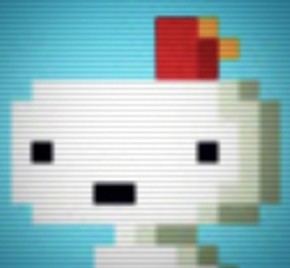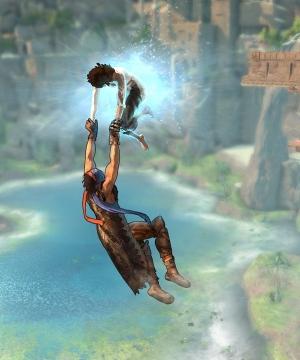 From what began as a Kickstarter project, Canadian producers Lisanne Pajot and James Swirsky followed the lives of three indie game developers, highlighting their struggle, successes, and deepest desires. As the first documentary on indie games, a lot was expected from this film, but I'm here to tell you that it delivers, even if not how many hoped it would.
From what began as a Kickstarter project, Canadian producers Lisanne Pajot and James Swirsky followed the lives of three indie game developers, highlighting their struggle, successes, and deepest desires. As the first documentary on indie games, a lot was expected from this film, but I'm here to tell you that it delivers, even if not how many hoped it would.The film follows the game designers behind the extremely popular indie games Super Meat Boy, Fez, and Braid. Jonathan Blow, creator of Braid, is probably the lesser focus of the three, but is instead intended as an example of success in the indie world, coming in and out of the film in a few short bursts to talk about his journey and his post-success. But at the very core of this movie sits the personal and emotional story of Phil Fish(Fez) and the super duo Edmund McMillen and Tommy Refenes(Super Meat Boy).
 |
| The main character of Fez gets his 3-D powers from wearing the Arabian hat of the same name. |
 |
| Edmund McMillen probably comtemplating monsters, sales day, and hairless cats. Source: Rock Paper Shotgun |
While the lives of these developers were surely interesting, I also found it generated a lot of questions about the actual games themselves. Braid, for example, has some very original and interesting time mechanics that are never mentioned. We hear Blow talk about his disappointment when he realizes that people are liking his game but missing the point he intended and yet, we never get to see the game and make our own opinions on why that may be. Similarly, Fez is a 3-D and 2-D world, but for people outside of the gaming diaspora it might not be easy to see why that's so mind-boggingly awesome or refreshing just from the film alone. By leaving out the intelligence and inner-workings of the game, Pajot and Swirsky also paint the indie industry as creators of platforming games only, which is a huge mistake.
Even with these flaws, it's easy to argue that Pajot an Swirsky knew what they were doing. Easily, they entice the audience, gamer or not, to want to watch these lives pan out. The emotion is there, right on screen. It almost feels like you're right there with them, experiencing these failures and successes altogether. By the end of the film, you're rooting for these people. This is an incredible documentary that tells it like it is and manages to open the door for the next wave of indie films to answer the questions it stirs up inside us.
You can watch Indie Game: The Movie on Netflix currently, and buy your own hard copy at a steal from indiegamethemovie.com.
Also, stay tuned for indie games of 2012!







 2:23 AM
2:23 AM
 Lissy
Lissy

 Posted in:
Posted in: 




